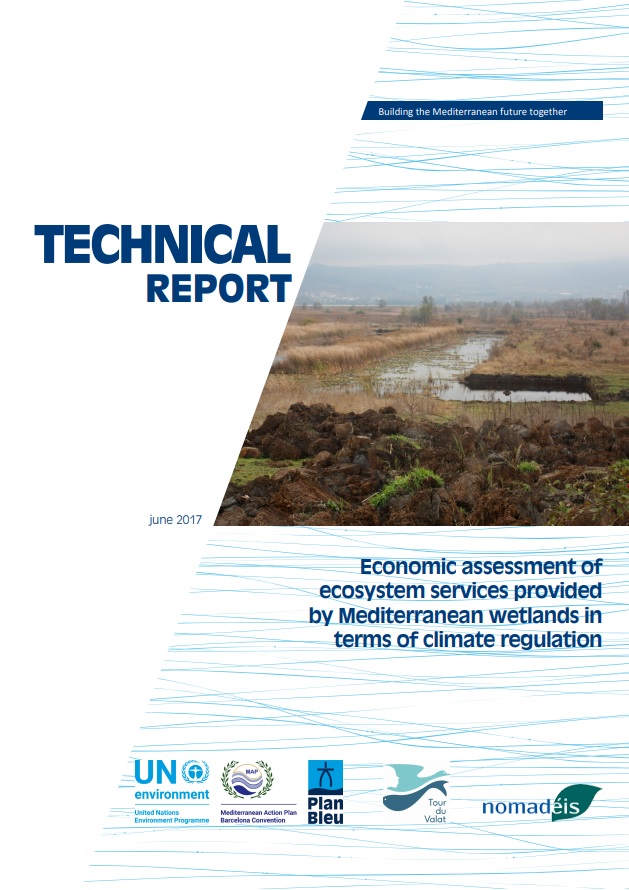Overview
In order to improve knowledge and report on the climate mitigation role of Mediterranean wetlands in adaptation and natural disaster prevention policies, Plan Bleu launched the Med-ESCWET project in partnership with Tour du Valat in 2013. This project on the “economic valuation of the ecosystem services provided by wetlands in terms of climate change adaptation in the Mediterranean” was co-funded by the MAVA Foundation and the Prince Albert II of Monaco Foundation. It seeks to develop an ecosystem-based approach and promote the use and restoration of natural infrastructure as climate change adaptation measures, rather than the artificial infrastructure which was widely preferred until now.
As part of Med-ESCWET, economic valuation was completed for three regulating ecosystem services associated with climate change adaptation:
• the coastal storm protection service,
• the flood control service,
• and the carbon sequestration service.
Four Mediterranean pilot sites were identified to value these services in Croatia, France, Egypt and Turkey. It should be noted that this is not about giving monetary value to services without a market price, but about creating a common language so that policymakers can consider the environment as a natural capital on which most business sectors depend.
Economic valuation is an exercise combining ecology, economics, hydrology and sociology, and requires prior biophysical assessment which is vital for the soundness of the study (Barbier, 2011a; CGDD, 2010). Hydroperiods (water budget and storage capacity) and flood pulsing (rhythm) in the areas studied need to be taken into account in the assessment. They determine the constitution of hydromorphic soils and some of the wetland’s functionalities that influence the ecosystem services. In line with the data, available resources and the limitations of the chosen economic techniques, the following study illustrates the interest of an ecosystem-based climate change adaptation approach via wetlands. By doing so, it strengthens a view that is already recognised and encouraged across the world, particularly by the Convention on Biological Diversity (CBD, UNFCCC), and at the Mediterranean level (IUCN, UNEP/MAP).



